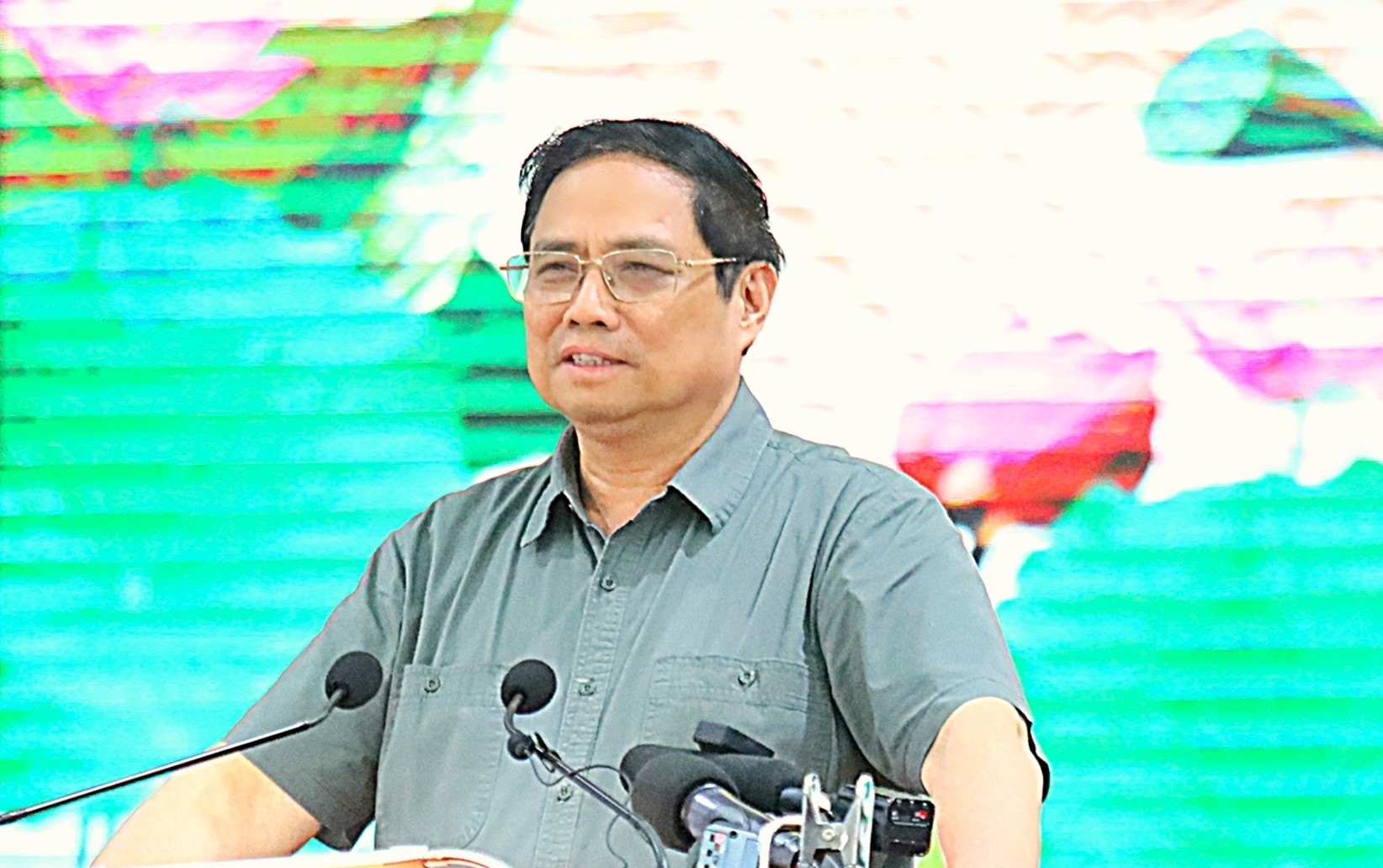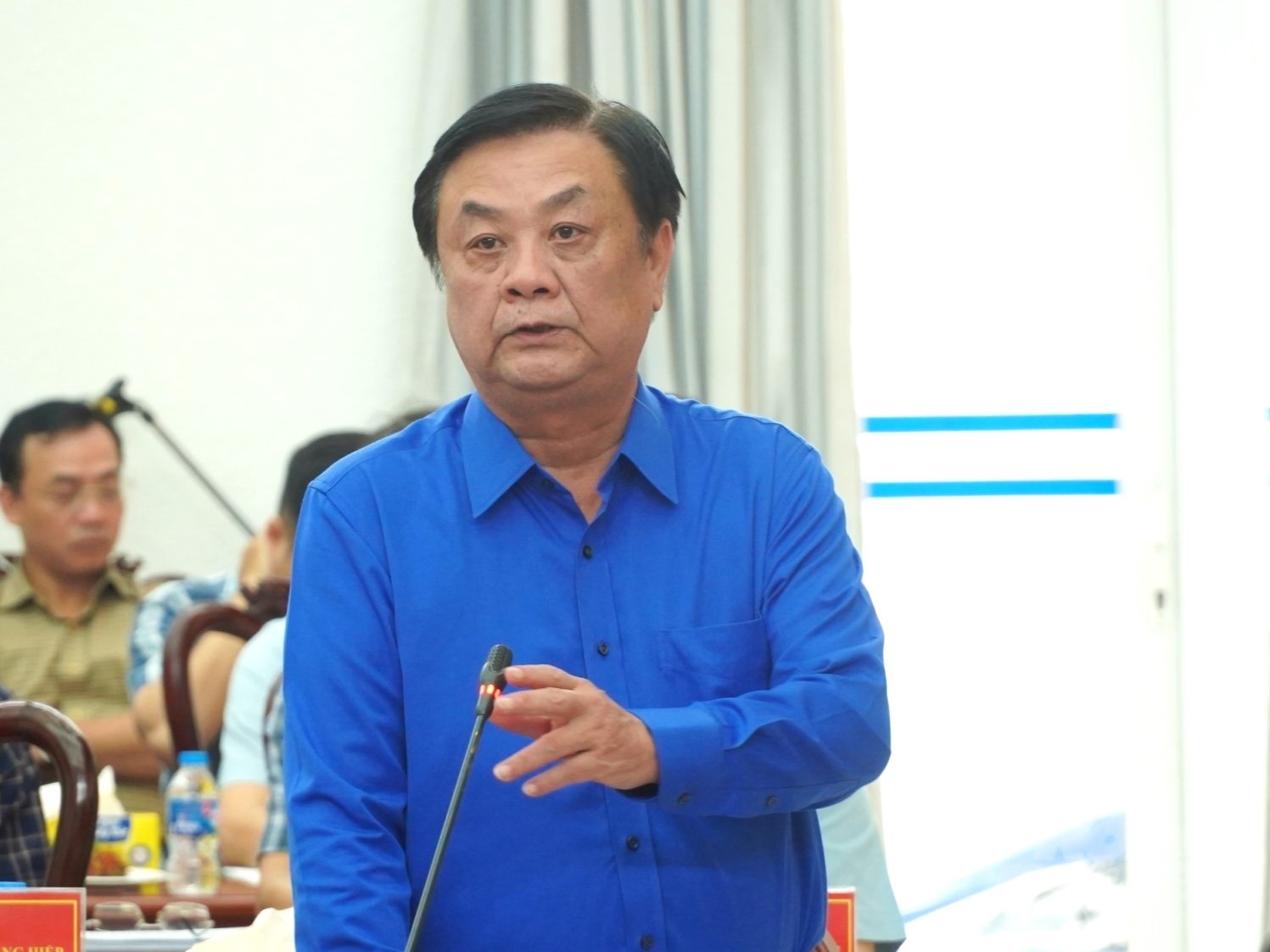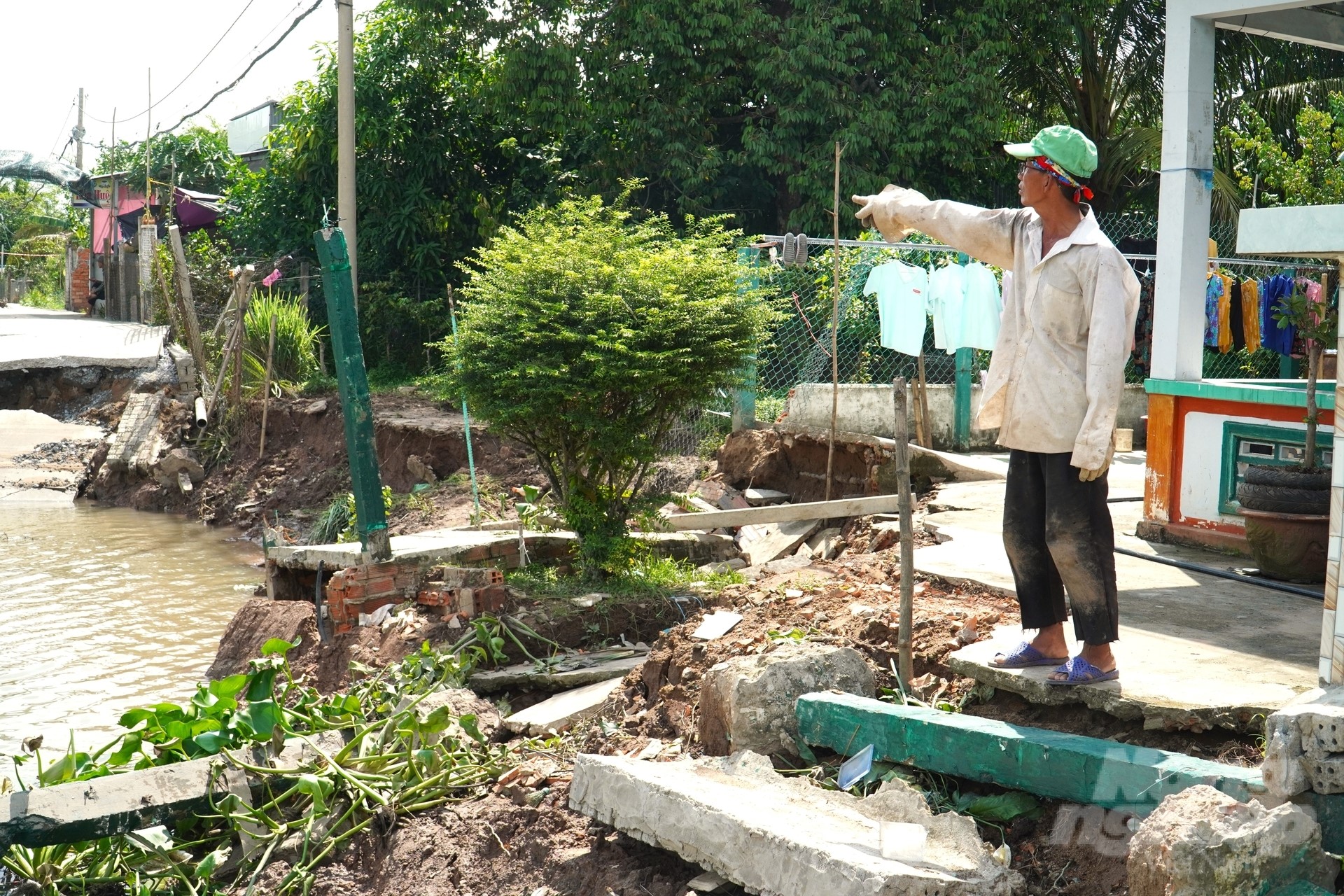June 21, 2025 | 02:38 GMT +7
June 21, 2025 | 02:38 GMT +7
Hotline: 0913.378.918
June 21, 2025 | 02:38 GMT +7
Hotline: 0913.378.918
On August 12, Prime Minister Pham Minh Chinh chaired a meeting with provinces and cities in the Mekong Delta region on the situation and solutions to overcome riverbank and coastal landslides.
The report of the Ministry of Agriculture and Rural Development shows that the weather’s extraordinary developments, especially the impact of climate change, and the unsustainable socio-economic development in the upstream and local Mekong Delta countries have led to a complicated situation of riverbank and coastal landslides in recent times.

Prime Minister Pham Minh Chinh requests ministries, branches, and localities in the Mekong Delta region to raise awareness about the dangers and consequences of landslides in the Mekong Delta. Photo: Kim Anh.
Since 2016, the whole Mekong Delta region has recorded 779 landslide spots with a total length of over 1,100km. Of which, 281 particularly dangerous landslide spots with a length of 528km require the construction of protection works. Besides, there are 306km of dangerous landslides and 300km of normal landslides.
The situation of river and canal landslides in the Mekong Delta is progressively increasing in terms of spot number, scale, and speed. Moreover, the extent of landslides in the upstream area (popularly in An Giang, Dong Thap, and Vinh Long provinces) is usually larger than that in the downstream area (including Tra Vinh, Ben Tre, and Soc Trang provinces).
Assessing the causes of landslides, the report of the Ministry of Agriculture and Rural Development pointed out that most landslide areas often occur strongly and popularly in curved river sections, distributive locations, at the beginning of islands, or in densely populated areas. Not only that, bank landslides mainly occur in the flood season. The bigger the flood, the faster the landslide of the channel flow and the stronger the development of the channel flow.
Especially, the problem of sand mining with a large volume and lack of control not only changes the shape of the river cross-section and the magnitude and texture of the flow but also changes the turbidity. Therefore, it affects the alluvial erosion and channel flow deformation of adjacent river sections, especially the downstream river section of the mining area.

Minister of Agriculture and Rural Development Le Minh Hoan spoke at the meeting. Photo: Kim Anh.
Over the past time, ministries, branches, and localities have implemented many solutions, focusing on the work of managing riverbanks, river beds, and coasts; strengthening the handling of violations; investigating and assessing the current state of coastal and riverbank landslides; and building a landslide prevention map. Since 2016, the Central has invested and plans to invest over VND 16,220 billion in building 218 embankments against landslides with a length of 324km for the Mekong Delta.
In order to have short-term and long-term solutions to prevent and overcome riverbank and coastal landslides in the Mekong Delta, ensuring people's lives, properties, and livelihoods, Prime Minister Pham Minh Chinh affirmed that the Government always pays attention, promulgates many policies, implements many solutions to promote potential and advantages, and creates a driving force for socio-economic development in the Mekong Delta region, including the work of natural disaster prevention and control, climate change adaptation, and sustainable development.
Through field surveys in eight provinces and cities in the Mekong Delta region, the Government leaders have recorded a number of particularly dangerous landslide hotspots. Since then, the Prime Minister has asked the Ministry of Agriculture and Rural Development to coordinate with localities in the Mekong Delta region to review and synthesize particularly dangerous landslide spots. The Prime Minister has also assigned the Ministry of Planning and Investment to chair and coordinate with the Ministry of Finance in balancing and allocating resources, then submit to the Prime Minister for approval to support localities in handling landslide areas early.

Since 2016, the whole Mekong Delta region has recorded 779 landslide spots with a total length of over 1,100km. Photo: Kim Anh.
According to the Prime Minister, currently, a number of landslide prevention works have been invested in but have not been effective and are not sustainable. In addition, the work of maintenance has not focused on mobilizing social resources.
Therefore, Prime Minister Pham Minh Chinh requests ministries, branches, and localities to raise awareness about the dangers and consequences of landslides in the Mekong Delta in the coming time. At the same time, strengthen leadership, direction, and organization of decentralization; improve enforcement capacity; and accelerate inspection and supervision of riverbank and coastal landslide prevention and control.
Translated by Huyen Vu Thu

(VAN) The waste of resources from agricultural by-products and the situation of counterfeit and poor quality goods in production causing losses of thousands of billions were pointed out by the National Assembly deputy.

(VAN) After 5 years of implementation, the CAI initiative has helped coffee growers change their farming practices, moving toward responsible agriculture that meets global export standards.

(VAN) The primary prerequisite for the comprehensive and robust integration of Vietnam's livestock sector into the global value chain is the establishment of a disease control system.

(VAN) The results of national programs are essential for establishing a contemporary livestock sector that is well-equipped to meet the demands of both domestic and international markets, with robust biosafety standards.

(VAN) The UNESCO Global Geopark revalidation of Non nuoc Cao Bang and the transition to a two-tier administrative model are presently undergoing a pivotal moment in Cao Bang, the northernmost province of Vietnam.
/2025/06/13/5330-2-004539_953.jpg)
(VAN) Changing policy mindset and removing investment barriers are urgent requirements to open up new development space for enterprises in the agricultural sector.

(VAN) The areas include the restoration of five million hectares of marine ecosystems.